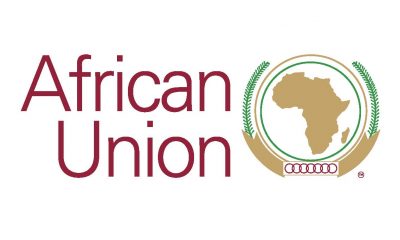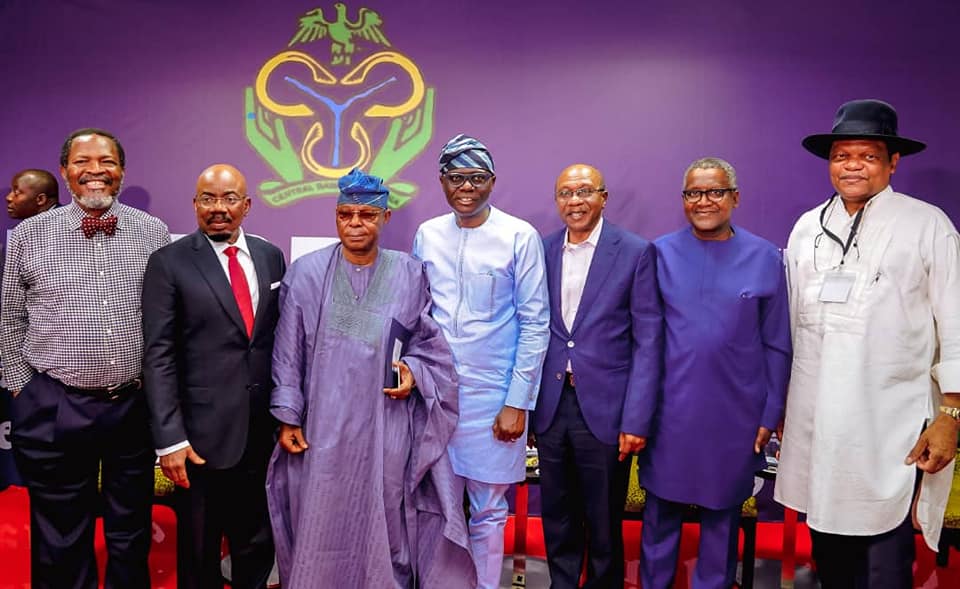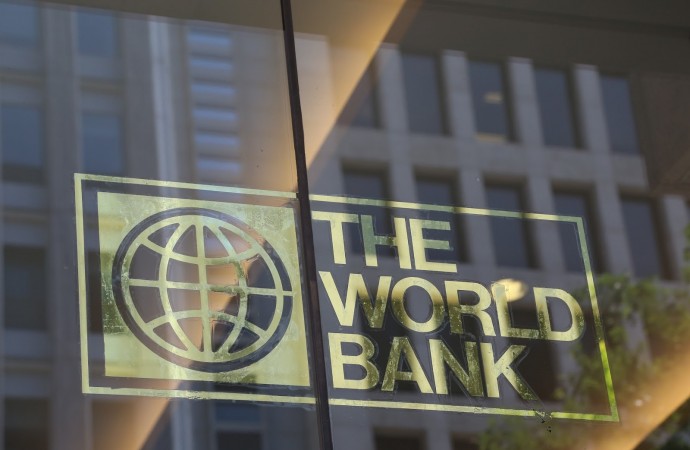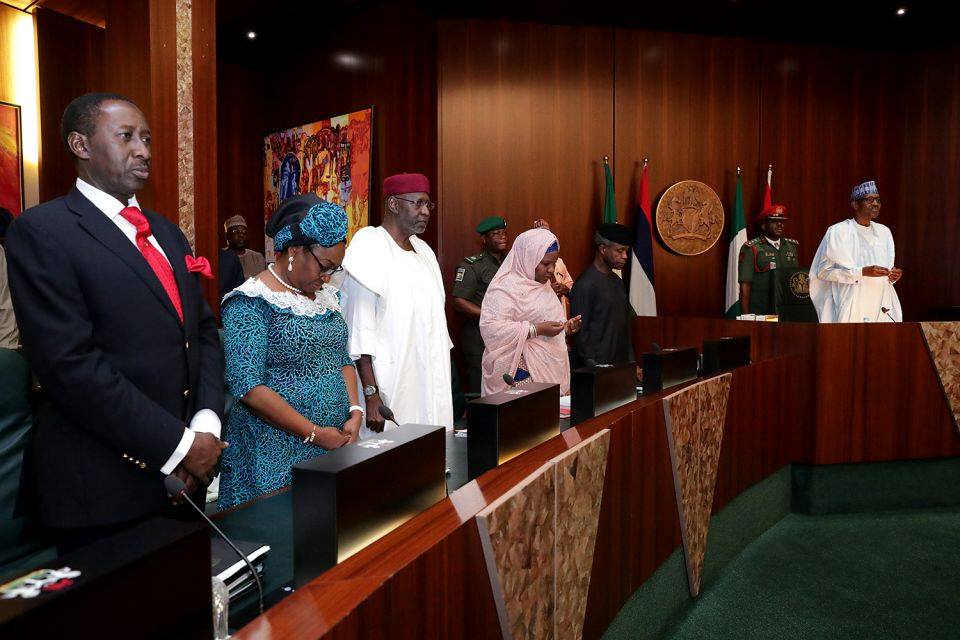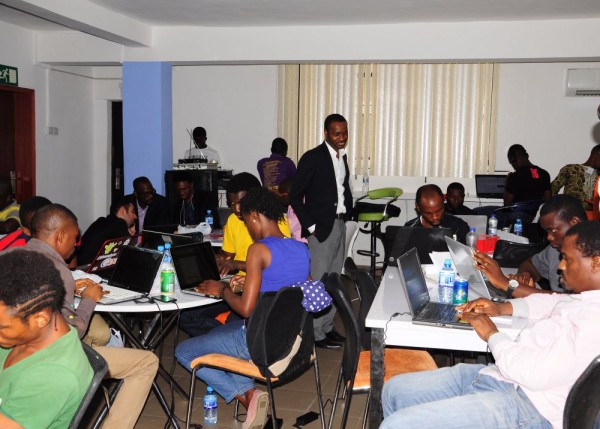Economy
Crowding Private Sector Into Africa’s Climate Action
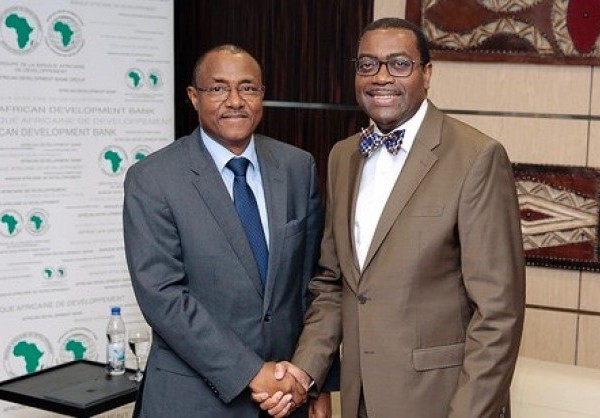
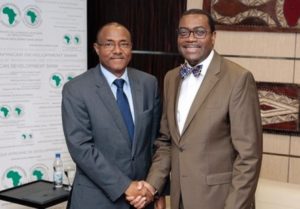
By Financial Nigeria
The global community for climate action was spooked by the November 8 election of Donald Trump as the next President of the United States.
The US President-elect had earned the sobriquet of “climate denier,” for his claim that climate change is a hoax.
However, there is cautious optimism that his presidency will not overturn the global agenda on climate change.
Hopefully, his views on climate change will change and align with reality when he settles into the Oval Office. Policymakers also believe that global climate agreements cannot be reversed easily.
In the meantime, stakeholders are pressing on with formulating strategies for climate change mitigation and adaptation.
The 22nd session of the Conference of the Parties (COP 22) to the United Nations’ agency on climate change held on November 7 – 18 in Marrakech, Morocco.
At the climate talks, Australia, Japan, United Kingdom, Pakistan and seven other countries ratified the December 2015 Paris Climate Agreement. A total of 111 countries, including the United States, China and Member Countries of the European Union ratified the agreement by the time COP 22 concluded.
Since the Paris accord entered into force on November 4th, quite earlier than anticipated, global action against climate change has effectively shifted to strategic programming. Therefore, in Marrakech, Canada, Germany, Mexico and the United States published their plans to significantly decarbonize their economies by 2050. A group of 47 developing nations also committed to running entirely on renewable energy sources “as rapidly as possible.”
Some of the plans are already gaining traction. Investments in renewable energy totalled $286 billion in 2015. This surpassed by 3% the previous high of renewable energy investment achieved in 2011. Data gleaned from Global Trends in Renewable Energy Investment 2016, a joint publication by United Nations Environment Programme and Bloomberg, further revealed that last year, coal and gas-fired electricity generation drew less than half the record investment made in solar, wind and other renewable energy sources.
The trend in renewable energy investment is a mixed bag, even in developing countries. China alone accounted for 55% of total investment last year; Africa’s share was less than 5%. As climate change mitigation is being driven by investment in green energy, Africa is already taking the familiar position at the back seat on the ‘green energy train’.
This was not unanticipated by climate policymakers. Although China is the clear leader in investment in renewables, other developing countries, in particular the low-income countries, are not expected to be able to keep pace without international assistance. But the advanced countries appear to be reneging on their pledges to help finance both mitigation and adaptation frameworks in the developing world, including Africa. This generated some rumblings in Marrakech, with regard to the commitment by the developed countries to raise $100 billion annually by 2020 to support climate actions in developing countries.
Disappointing as this is, the prospects of improvement in international assistance at the required scale are not assuring. One, virtually all the advanced countries have been bedevilled by over half a decade of weak economic growth. This has put investment in infrastructure below ideal levels, suggesting near-term pressure on the fiscal regimes to close the infrastructure gap, create domestic jobs, and boost economic growth.
Two, the economic malaise is also driving populist nationalistic sentiments in Europe and the United States. The backlashes for the emerging isolationist regimes are expected to include decline in international trade, further political uncertainties, shrinking and closed borders, and volatility in financial markets – acting together to further put downward pressure on economic growth and constrict foreign aid.
Three, the developing world has ceased to be monolithic. A handful of the countries have recently made significant economic and financial advances. These countries, including the BRICS economies, and the countries of the Gulf States that have amassed huge reserve savings, are expected to underline their climate strategies by investment. The less fortunate countries will continue to rely on overseas development assistance, although the gap between pledges and delivery will continue to widen. Without a united front, commitment to pledges for climate change mitigation and adaptation will continue to slack, with consequences for vulnerable populations.
Africa that is left behind in the transition to the green economy will be worse off than it is today. As the drive towards decarbonisation gathers pace, Africa’s oil economies will face more intense fiscal challenges.
Given the strong link between government balance sheets and private sector balance sheets, this will result in serious constraint for business growth and profit. Therefore, it is in the enlightened self-interest of African private sector to begin to mobilise investment capital for Africa’s climate action.
For starters, the private sector is best suited to take the lead role in innovating climate solutions and green development. In Africa, the frontiers for the innovations are in power and agriculture. These are sectors that have been far less developed, compared to services sectors.
Happily, countries including Nigeria have recently enacted reforms in both their power and agriculture sectors. These reforms are geared towards mobilising private sector resources, having relaxed statist control and incentivised investment.
Accordingly, the private sector can leverage reforms that have relaxed the centralisation of the power grid to innovate and finance off-grid electricity solutions. Opportunities for Public Private Partnerships are also opening up as subnational governments are seeking to accelerate improvement in the power sector. These are happening in the region that is well endowed with solar energy and wind resources.
Similarly, various reforms in the agriculture sector have factored the need for climate resilience in national food security policies. But there is significant knowledge gap in Africa’s agriculture which cannot be left to the smallholder farmers and governments to fill. Private investments across the agriculture value-chain are needed to help close the knowledge gap and support adaptation mechanisms in rural farming communities.
Token actions towards building the green economy cannot remain an option for Africa’s private sector. The risks are dangerously stacked. Without adequate climate action, African farmers could lose between 40 percent and 80 percent of their croplands for growing grains. Also, the effects of biodiversity loss and ecosystem degradation are dire for even urban populations.
But the question remains: how will private sector resources be mobilised? No doubt, significant capacity lies with the African financial institutions, including the development finance banks and to a lesser extent the export credit agencies. But there has been risk aversion and shortage of risk-sharing market instruments. In the Nigerian banking industry, for example, aversion towards risk in agribusiness has hampered funding by financial institutions. And funding pooled at the instance of Central Bank of Nigeria for on-lending to agro-SMEs has historically under-performed. A further drag is the macroeconomic conditions, which are driving interest rates more and more beyond the affordability of agro-entrepreneurs and smallholder farmers.
To unlock private sector funding, therefore, the blockades at both demand and supply sides of the credit market have to be addressed by smarter policies and more faithfulness with implementation. But this will not be enough. There has to be a framework for sharing expertise on the continent. The good news is that such frameworks that pool resources, help to mitigate risk, and share knowledge in mobilising climate actions already exist. At the supra-national level, the African Risk Capacity (ARC) was founded in 2012 as an agency of the African Union with the mandate to finance climate resilience and crisis response.
In line with its mandate, the ARC is planning to roll out an Extreme Climate Facility, which will issue multi-peril, climate change catastrophe bonds. The securitization instruments will bring scale and knowhow to Africa’s climate risk management and climate change adaptation efforts, with tremendous benefits to the agriculture sector. XCF’s catastrophe bonds are expected to attract not only investment from indigenous African banks but also from international financial institutions. One hopes that the XCF will soon be deployed, and the rigorous risk modelling it plans to have in place will serve other market initiatives.
Necessary as it is for Africa to take responsibility for its resilience to climate change and to develop its adaptation mechanisms, the continent should not be denied ‘climate justice.’ The heavily-industrialised countries account for overwhelming proportions of the emissions that are heating the planet and are intensifying climate risks for vulnerable populations in less-industrialised developing countries. This makes the delivery of aid towards adaptation in developing countries quite mandatory. Foreign aid is also required to catalyse market frameworks in developing countries, and secure part of the moral planks on which the much-celebrated Paris accord rest.
Economy
FG Targets Credit Access For 50% Workers By 2030

By Adedapo Adesanya
The Vice President, Mr Kashim Shettima, inaugurated the Board of the Nigerian Consumer Credit Corporation (CREDICORP) and gave a 50 per cent access target for workers, saying consumer credit was critical to Nigeria’s ambition of becoming a one-trillion-dollar economy by 2030.
According to him, President Bola Tinubu established the CREDICORP to build a trusted credit infrastructure, provide catalytic capital to lower borrowing costs, and help Nigerians overcome long-standing cultural resistance to credit.
Speaking on Thursday in Abuja when he inaugurated the board on behalf of the President, the Vice President, in a statement by his spokesman, Mr Stanley Nkwocha, said that the quality of life of Nigerians cannot improve without closing the gap between access to capital and human dignity.
“A civil servant who earns honestly does not have to chase sudden wealth just to buy a vehicle, or save for ten years to buy one. A young professional should not remain in darkness simply because solar power must be paid for all at once,” the Vice President said.
VP Shettima disclosed that in just one year of operations, CREDICORP has disbursed over ₦37 billion in consumer credit to more than 200,000 Nigerians, with over half of them accessing formal credit for the first time.
The Vice President said the organisation was specifically tasked with building credit infrastructure to bridge the trust gap between lenders and borrowers, providing wholesale capital and credit guarantees through its portfolio company.
“Ultimately, these critical jobs of CREDICORP will enable access to consumer credit to at least 50 per cent of working Nigerians by 2030,” he said.
The Vice President explained that the new board’s role was not ceremonial as they are custodians of the organisation’s mission, adding that the long-term strength of the institution would depend on their “vigilance, integrity, sacrifice, and commitment.”
He directed Board members to uphold Public Service Rules, the Board Charter, and all applicable governance frameworks, warning that accountability and stewardship of public resources were non-negotiable.
The Chairman of CREDICORP, Mr Aderemi Abdul, expressed appreciation to President Tinubu for his vision behind the formation of CREDICORP and for the confidence reposed in them, noting that the establishment of the corporation marked an important step towards strengthening the nation’s financial architecture.
He assured President Tinubu that the board understands its responsibility and will guide the institution to deliver meaningful benefits to Nigerians.
For his part, Mr Uzoma Nwagba, Managing Director/CEO of CREDICORP, recalled watching President Tinubu say 20 years ago that consumer credit is one of the major tools that will improve the lives of Nigerians.
He noted that over the past 18 months, the institution has benefited more than 200,000 Nigerians, including students.
He assured that the presidential vision behind CREDICORP would not be taken lightly, as the team considers their appointments a unique, once-in-a-lifetime opportunity.
Other members of the board inaugurated include Mrs Olanike Kolawole, Executive Director, Operations; Mrs Aisha Abdullahi, Executive Director, Credit and Portfolio Management; Mr Armstrong Ume-Takang (MD, MoFI), Representative of MoFI; Mrs Bisoye Coke-Odusote (DG, NIMC), Representative of NIMC; and Mr Mohammed Naziru Abbas, Representative of FMITI.
Others are Mr Marvin Nadah, Representative of FCCPC; Mrs Chinonyelum Ndidi, Representative of the Federal Ministry of Finance; Mr Mohammed Abbas Jega, Independent Director; and Mrs Toyin Adeniji, Independent Director.
Economy
NASD OTC Exchange Rallies 0.23% as Nipco Leads Six Advancers

By Adedapo Adesanya
Six price gainers helped the NASD Over-the-Counter (OTC) Securities Exchange retain its stay in green territory after a 0.23 per cent appreciation on Thursday, February 26.
The price gainers were led by Nipco Plc, which added N25.00 to close at N278.00 per share compared with the previous day’s N253.00 per share, NASD Plc rose by N5.13 to N56.41 per unit versus N51.28 per unit, FrieslandCampina Wamco Nigeria Plc expanded by N2.24 to N102.44 per share from N100.00 per share, Afriland Properties Plc grew by 88 Kobo to N18.88 per unit from N18.00 per unit, 11 Plc increased by 35 Kobo to N277.00 per share from N276.65 per share, and Lagos Building Investment Company (LBIC) Plc gained 27 Kobo to close at N3.75 per unit versus N3.48 per unit.
On the flip side, Central Securities Clearing System (CSCS) Plc lost N1.75 to sell at N68.25 per share versus N70.00 per share, and Geo-Fluids Plc depreciated by 2 Kobo to N3.25 per unit from N3.27 per unit.
The weight of the advancers fortified the NASD Unlisted Security Index (NSI) by 9.21 points to 4,034.46 points from 4,025.25 points, and the market capitalisation soared by N5.51 billion to N2.413 trillion from Wednesday’s N2.408 trillion.
Yesterday, the transaction value jumped by 18.8 per cent to N102.8 million from N80.7 million, and the number of deals surged by 18,8 per cent to 38 deals from 32 deals, while the transaction volume went down by 84.9 per cent to 1.3 million units from 8.7 million units.
At the close of business, CSCS Plc was the most traded stock by value (year-to-date) with 34.2 million units worth N2.04 billion, followed by Okitipupa Plc with 6.3 million units sold for N1.1 billion, and Geo-Fluids Plc with 122.1 million units valued at N478.2 million.
Resourcery Plc remained as the most traded stock by volume (year-to-date) with 1.05 billion units exchanged for N408.7 million, trailed by Geo-Fluids Plc with 122.1 million worth N478.2 million, and CSCS Plc with 34.2 million units traded for N2.04 billion.
Economy
Naira Down Again at NAFEX, Trades N1,359/$1

By Adedapo Adesanya
The Naira further weakened against the Dollar in the Nigerian Autonomous Foreign Exchange Market (NAFEX) for the fourth straight session this week on Thursday, February 26.
At the official market yesterday, the Nigerian Naira lost N3.71 or 0.27 per cent to trade at N1,359.82/$1 compared with the previous session’s N1,356.11/$1.
In the same vein, the local currency depreciated against the Pound Sterling in the same market window on Thursday by N8.27 to close at N1,843.23/£1 versus Wednesday’s closing price of N1,834.96/£1, and against the Euro, it crashed by N8.30 to quote at N1,606.89/€1, in contrast to the midweek’s closing price of N1,598.59/€1.
But at the GTBank forex desk, the exchange rate of the Naira to the Dollar remained unchanged at N1,367/$1, and also at the parallel market, it maintained stability at N1,365/$1.
The continuation of the decline of the Nigerian currency is attributed to a surge in foreign payments that have outpaced the available Dollars in the FX market.
In a move to address the ongoing shortfall at the official window, the Central Bank of Nigeria (CBN) intervened by selling $100 million to banks and dealers on Tuesday.
However, the FX support failed to reverse the trend, though analysts see no cause for alarm, given that the authority recently mopped up foreign currency to achieve balance and it is still within the expected trading range of N1,350 and N1,450/$1.
As for the cryptocurrency market, major tokens posted losses over the last 24 hours as traders continued to de-risk alongside equities following Nvidia’s earnings-driven pullback, with Ripple (XRP) down by 2.7 per cent to $1.40, and Dogecoin (DOGE) down by 1.6 per cent to $0.0098.
Further, Litecoin (LTC) declined by 1.3 per cent to $55.87, Ethereum (ETH) slipped by 0.9 per cent to $2,036.89, Bitcoin (BTC) tumbled by 0.7 per cent to $67,708.21, Cardano (ADA) slumped by 0.6 per cent to $0.2924, and Solana (SOL) depreciated by 0.4 per cent to $87.22, while Binance Coin (BNB) gained 0.4 per cent to sell for $629.95, with the US Dollar Tether (USDT) and the US Dollar Coin (USDC) closing flat at $1.00 each.
-

 Feature/OPED6 years ago
Feature/OPED6 years agoDavos was Different this year
-
Travel/Tourism10 years ago
Lagos Seals Western Lodge Hotel In Ikorodu
-

 Showbiz3 years ago
Showbiz3 years agoEstranged Lover Releases Videos of Empress Njamah Bathing
-

 Banking8 years ago
Banking8 years agoSort Codes of GTBank Branches in Nigeria
-

 Economy3 years ago
Economy3 years agoSubsidy Removal: CNG at N130 Per Litre Cheaper Than Petrol—IPMAN
-

 Banking3 years ago
Banking3 years agoSort Codes of UBA Branches in Nigeria
-

 Banking3 years ago
Banking3 years agoFirst Bank Announces Planned Downtime
-

 Sports3 years ago
Sports3 years agoHighest Paid Nigerian Footballer – How Much Do Nigerian Footballers Earn



